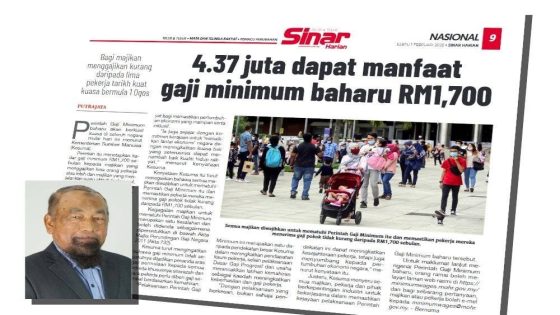The recent increase in the minimum wage to RM1,700 has significant implications for small and medium enterprises (SMEs) in Malaysia. As of February 2, 2025, this change aims to enhance workers’ living standards but poses challenges for the 1.9 million SMEs operating in the country. How will these businesses adapt to the rising operational costs?
- Minimum wage increase impacts small businesses significantly
- Many small business owners struggle with costs
- Previous wage hikes caused operational difficulties
- Productivity improvements needed alongside wage increases
- Tourism sector faces challenges from wage rise
- Balance needed between worker welfare and business sustainability
How Will Malaysia’s SMEs Cope with the New Minimum Wage Increase?
With the minimum wage hike, many SMEs are left wondering how they will manage the increased financial strain. Will they be able to maintain their operations without sacrificing employee welfare?
Challenges Faced by Small Enterprises Amid Wage Hike
Small businesses are particularly vulnerable to the new wage regulations. Many owners are expressing concerns about their ability to cover increased costs without compromising their services. Here are some key challenges:
- Limited financial resources to absorb higher operational costs.
- Dependence on manual labor, hindering productivity gains.
- Difficulty in raising prices in a competitive market.
- Potential layoffs or business closures due to financial strain.
Strategies for SMEs to Enhance Productivity
To survive this wage increase, SMEs must focus on improving productivity. This can be achieved through various strategies, including:
- Investing in technology to automate processes.
- Providing training for employees to enhance their skills.
- Streamlining operations to reduce waste and inefficiencies.
- Exploring new markets to diversify income streams.
The Role of Government Support in SME Survival
Government assistance will be crucial for SMEs adapting to the new wage structure. Possible measures include:
- Offering tax incentives for businesses that invest in technology.
- Providing grants or subsidies for employee training programs.
- Extending deadlines for compliance with new wage laws.
- Facilitating access to financial support for struggling businesses.
In conclusion, while the minimum wage increase to RM1,700 aims to improve workers’ lives, it presents significant challenges for Malaysia’s SMEs. By focusing on productivity and leveraging government support, these businesses can navigate this transition successfully.






























